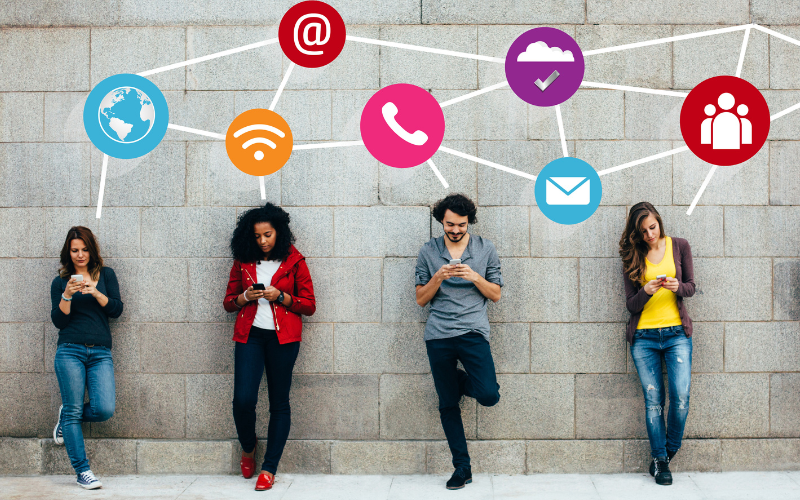In our quotidian existence, the impact of informational social influence looms large as a formidable force in shaping our thoughts, sentiments, and deeds. This refers to the profound influence that others exert on our perspectives by imparting information, whether it is through various media, word-of-mouth, or social networks. The ramifications of informational social influence on our decision-making process and our overall comprehension of the world can be immense.
But what precisely is informational social influence, and how does it function? In this article, we shall embark on an exploration of this complex and multifaceted concept, dissecting its various forms, effects, and implications.
Understanding Informational Social Influence
Let me begin our expedition by delving deeper into the intricate workings of informational social influence and attempting to grasp its essence. Informational social influence is the persuasion and sway that others exert over our beliefs, attitudes, and behaviors by providing information. This influence can assume numerous forms, such as advertising, media, and peer pressure, to name a few. To fully comprehend the nuances of informational social influence, it is crucial to differentiate between two key types: normative and informational.
Normative social influence stems from the desire to conform to social norms and expectations, often motivated by a wish to be accepted by others and to blend in with a group. In essence, this type of influence involves people conforming to the behaviors and opinions of those around them to avoid social exclusion or disapproval.
On the other hand, informational social influence originates from the belief that others possess superior knowledge or expertise in a particular topic or situation. This type of influence can be particularly potent, as it is rooted in the perception that others are more knowledgeable or better informed than oneself. Therefore, individuals tend to look towards these perceived experts for guidance and direction, assuming that their recommendations are based on credible information and evidence.
The impact of informational social influence on our lives is not limited to just shaping our opinions and beliefs. It also extends to our decision-making processes and can have profound implications for our behavior. For instance, studies have shown that people are more likely to adopt behaviors and attitudes recommended by credible sources, such as doctors or experts, especially in situations where they lack information or are unsure about what action to take.

The Impact on Our Lives
In the grand scheme of things, informational social influence wields a tremendous impact on our lives, molding our beliefs, attitudes, and behaviors in various complex ways. From shaping our outlook on life to impacting our decisions, the effects of informational social influence are myriad and diverse. Let us explore some of the most prominent effects of this pervasive force:
- Influencing Our Beliefs and Attitudes: Informational social influence has the power to influence what we believe and how we feel about a particular subject. When we are exposed to a copious amount of positive feedback on a specific product, we are likely to adopt a positive attitude towards it and believe that it is a good product.
- Shaping Our Behaviors: It can affect our behavior and decision-making, urging us to act in a particular way or make certain decisions. If we are told that a particular political candidate is the best choice, we may be inclined to vote for that candidate.
- Changing Our Opinions: Informational social influence can also provoke a change in our opinions about a topic or issue. For instance, if we are constantly presented with information on the dangers of smoking, we may be more likely to adopt a negative attitude towards smoking and alter our opinion on the matter.

Types of social influence
The types of informational social influence are manifold and exhibit unique characteristics and effects, some of the most prominent being:
- Expertise Influence: This form comes into play when individuals rely on the perceived knowledge or expertise of others while making decisions or forming opinions.
- Majority Influence: This type occurs when individuals conform to the opinions or behavior of the majority of people in a group. This can stem from a desire to conform or to be correct.
- Minority Influence: This kind of informational influence arises when individuals are swayed by the opinions or behavior of a minority group, sometimes because they view the minority group as having unique knowledge or expertise, or they are attracted to the dissenting views of the minority group.
- Social Comparison: Social comparison comes into play when individuals compare their opinions, behavior, or abilities with those of others, and subsequently align their own opinions with the perceived norm.
- Persuasion: This type of informational influence is initiated when individuals are influenced by the arguments or persuasive tactics of others, which may involve logical appeals, emotional appeals, or other forms of persuasion.
Each of these types can significantly impact our beliefs, attitudes, and behaviors. It is vital to be aware of these different forms and to comprehend their effects in order to better understand the multifarious impact of informational social influence.
The realm of informational social influence has undergone an irrevocable transformation due to the multifaceted and intriguing role of media and technology. This evolution has brought about an unprecedented level of connectivity and instant access to information. In particular, social media has revolutionized the dissemination and propagation of information, providing both positive and negative impacts on informational social influence.
The power of social media lies in its remarkable ability to facilitate the rapid sharing of information and connect people with similar interests and beliefs. However, this technology has also become a breeding ground for misinformation, which can easily be disseminated, thus posing a formidable challenge to the credibility of the available information. The variability and range of information available on social media platforms have led to a situation where people can be exposed to an extensive variety of perspectives and opinions.
Aside from social media, technology has revolutionized the way we consume news and information. Online news sources have gained immense popularity, and traditional media has seen a decline, making it easier for people to access information from a multitude of sources. This, in turn, can provide an excellent way to broaden one’s perspective and gain access to a diversity of opinions and viewpoints. However, the sheer proliferation of fake news and misinformation on the internet has made it crucial to adopt a critical and discerning approach when evaluating information from online sources.

The Power of Peer Influence
The inexorable influence of peer pressure is another compelling and salient factor in the complex web of informational social influence. Peers hold a significant impact on our beliefs, attitudes, and behaviors, particularly during our formative years.
If our friends and acquaintances hold certain beliefs, we may be more likely to adopt those beliefs and even purchase products endorsed by them. The power of peer influence is even more amplified in a digital age where people are interconnected through social media platforms, making it easier for their opinions and views to permeate our consciousness.
In fact, peer influence can significantly shape our political beliefs and attitudes. If we are bombarded with positive feedback on a political candidate from our peers and acquaintances, we may be more likely to vote for that candidate, even if we have little or no knowledge about their policies and beliefs. The power of peer influence is pervasive, and it is vital to be cognizant of its effects on our thought processes and decision-making. Thus, it is essential to be aware of the multifaceted and intriguing role of media and technology in informational social influence, while also being mindful of the power of peer pressure.

FAQs:
Pray tell, could you elucidate the definition of informational social influence?
Of course! Informational social influence refers to the mysterious hold that others have over our opinions, tendencies, and actions through the information they provide. This can take many forms, from advertisements to media to peer pressure.
Could you shed light on the difference between the two types of informational social influence?
The two categories are normative and informational. Normative social influence deals with the impact that arises from the desire to conform to social norms and expectations, while informational social influence encompasses the effect that stems from the notion that others possess superior knowledge or expertise regarding a particular subject or situation.
How does informational social influence impact our existence?
It can have a profound impact on our lives, altering our beliefs, attitudes, and behaviors in numerous ways. It can modify our beliefs and attitudes, shape our actions, and change our perspectives.
Takeaway
In conclusion, Informational social influence is a formidable force in our lives that has the power to shape our beliefs, attitudes, and behaviors in many ways. Be it through media, technology, or the influence of peers, it’s essential to be aware of the impact can have on our decision-making and to be cautious and discerning when evaluating information from others. By acknowledging the strength of informational social influence, we can make more informed decisions and steer our lives in positive directions.
*If you want to know how social media affects relationships, read this article.




